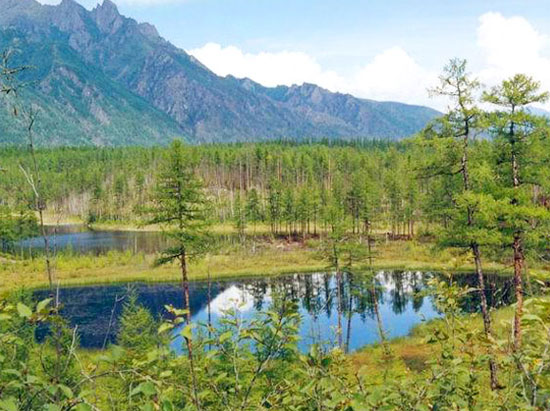Russia and Mongolia will establish transnational conservation zones
The Russian government website on March 13 announced that the government has approved an agreement to establish a trans-boundary conservation area with Mongolia called "Amur Riverhead".
The agreement outlines the conservation of biodiversity and landscape in the southern Baikal region, the upper Amur river, which can only be guaranteed when the countries bordering on the region join efforts. .

Amur Nature Reserve of Russia
The establishment of a cross-border conservation area "Watershed Amur River" , including the Russian National Nature Reserve of the Sokhondinsky National Park (the Baikal region) and Mongolia's Onon Baldzhinsky National Park, is an effective solution. to solve this problem, at the same time deepening bilateral cooperation in the field of environmental protection between the two countries.
The agreement was drafted by the Russian Ministry of Natural Resources, in line with the action plan to 2020 to implement the View of the Development of a system of specially protected natural areas of federal importance.
On the same day, the Russian Ministry of Natural Resources also announced that every year the country has suffered more than 10 billion rubles (about 300 million USD) due to illegal deforestation. The ministry stated that cutting down illegal forests and burning forests are two major problems today. The total area of forest fires and illegal logging has exceeded the area of regenerated forests.
According to the Russian Ministry of Natural Resources, the priorities of national policy for forest regeneration are to reduce forest damage, abandon excessive exploitation of forests. To achieve this goal, the government needs to implement the forestry sector development program by 2020 with a total estimated cost of 526 billion rubles (more than 17 billion USD).
- World leaders meet for tigers
- Establish saola conservation area in Thua Thien Hue
- VND 100 billion to develop marine conservation zones
- Sundarbans Reserve
- Strong earthquake in Russia
- Establish Central Turtle Conservation Center
- Vietnam attends a tiger conservation summit
- Dead zone in the Gulf of Mexico may reach nearly 21,000 km2
- Russia wants to help America explore the Moon
- The US and Japan will store nuclear waste in Mongolia
- Mongolia: The price paid for the environment
- Discovering the stronghold of Genghis Khan in Mongolia
 Vietnam 5th Asian champion on fuel-efficient vehicles
Vietnam 5th Asian champion on fuel-efficient vehicles We can read all NASA studies completely free of charge
We can read all NASA studies completely free of charge Singer and songwriter Bob Dylan won the 2016 Nobel Prize for Literature
Singer and songwriter Bob Dylan won the 2016 Nobel Prize for Literature Scientific revolution in Asia
Scientific revolution in Asia